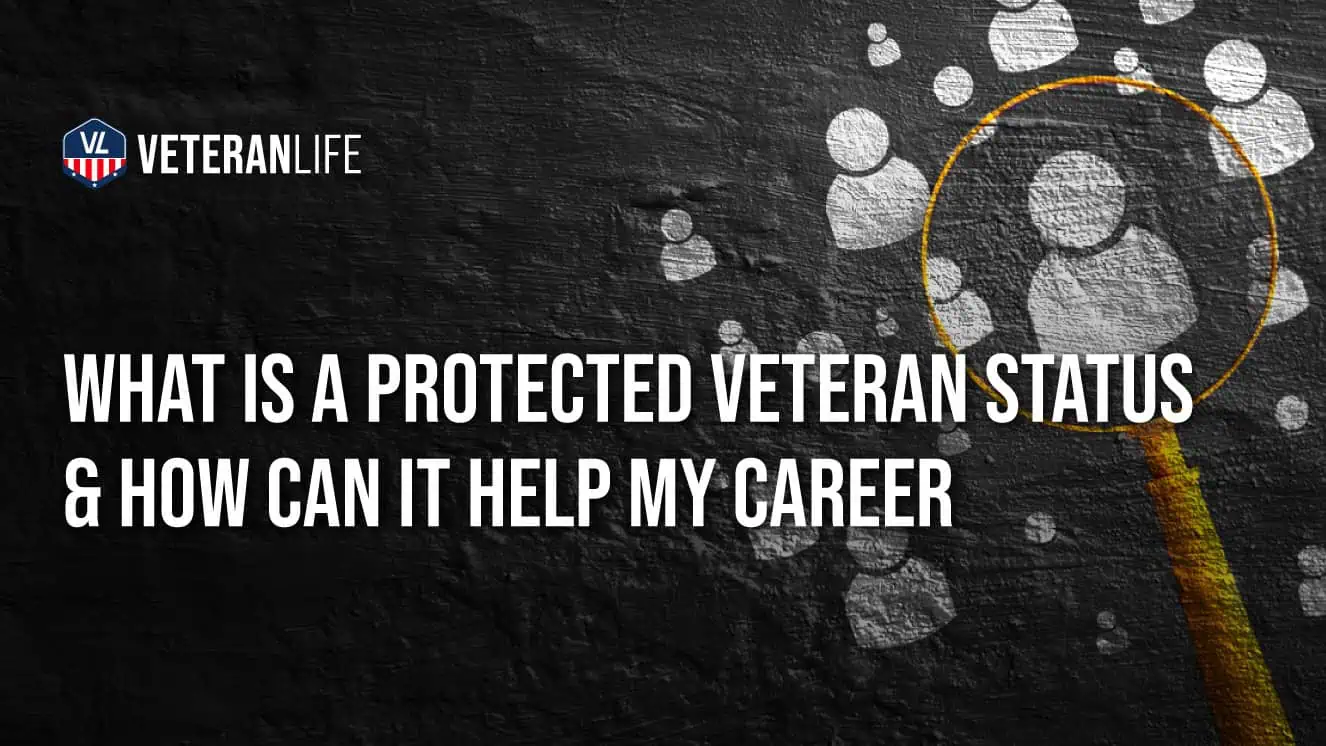

If you’ve served your country in the military, there are special programs and laws you should know about to help you in your civilian career. These laws provide protections and rights if you are a “protected Veteran.” But, you may be wondering, what is a protected Veteran? Read on to learn more about protected Veteran status and the protections and benefits that you may be entitled to.
The Vietnam Era Veterans’ Readjustment Assistance Act of 1974, known as VEVRAA, prohibits discrimination against protected Veterans. VEVRAA may sound like it only applies to Vietnam-era Vets, but that’s not the case. So, what is a protected Veteran?
According to the U.S. Department of Labor’s Office of Federal Contract Compliance Programs (whew, we know that’s a mouthful), there are four different categories of protected Veterans under VEVRAA:
You are not considered a protected Veteran if you did NOT serve active duty in the U.S. military OR if you received a dishonorable discharge from the military.
Still confused? Check out this handy infographic from the Office of Federal Contract Compliance Programs to see what category you fall under.
The Vietnam Era Veterans’ Readjustment Assistance Act of 1974 (VEVRAA) has two major functions. VEVRAA requires employers who do business with the federal government to “take steps to recruit, hire, and promote protected Veterans.” The law also makes it illegal for said companies to “discriminate against protected Veterans when making employment decisions on hiring, firing, pay, benefits, job assignments, promotions, layoffs, training, and other employment-related activities.”
In other words, you can’t be discriminated against due to your Veteran status. And you CAN get an advantage when you apply for certain federal contractor jobs or promotions.
VEVRAA works to ensure that protected Veterans are not discriminated against. The law says that protected Veterans cannot be denied employment, harassed, demoted, terminated, paid less, or treated less favorably because of their Veteran status.
Under VEVRAA, disabled Veterans can also request reasonable accommodations that better allow them to do their job, unless said accommodations are significantly difficult or expensive for the employer. Disabled Veterans can also ask for reasonable accommodations to be made during the job application process.
VEVRAA’s affirmative action provisions give Veterans an advantage in getting certain federal contractor jobs. Protected Veterans can get priority referrals for federal contractor job openings via local employment service offices or American Job Centers. (You can find your closest center at CareerOneStop.org.)
Federal government jobs also typically grant hiring preference to protected Veterans.
Please note that private employers are encouraged but NOT required to give Veterans preferential treatment in the job hiring process.
If you think your employer or would-be employer is discriminating against you as a protected Veteran, you may file a complaint with the Office of Federal Contract Compliance Programs (OFCCP).
There are three ways to file a complaint with the OFCCP.
Your complaint must be filed within 300 days of the alleged discrimination (unless you get an extension for good cause).
You should also know that your employer cannot fire, demote, or otherwise retaliate against you if you file a complaint. Retaliation after a complaint is filed is illegal. Under OFCCP regulations, you are protected against any harassment, coercion, threats, etc., that you receive as a result of you filing a complaint.
If you are found to be a victim of employment discrimination, you may be entitled to a variety of remedies that aim to restore you to the position that you would have been in if no discrimination had taken place. This may mean being hired, re-hired, promoted, reassigned, or reinstated. You may also receive back pay, front pay, a raise, or other financial compensation.
OFCCP may also bar the offending federal contractor from future consideration in federal contracts or cancel their current contracts. In other words, federal contractors have hefty financial incentives to stay within the regulations of VEVRAA.
If you want to learn more about your protections and rights as a protected Veteran, visit the OFCCP’s website for VEVRAA (and you thought your days with acronyms were over when you got your DD-214!).